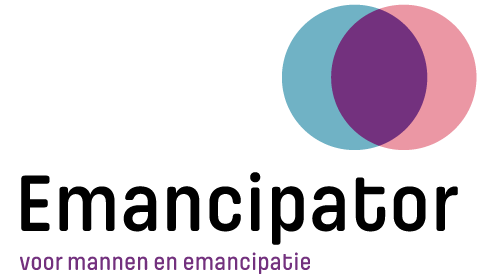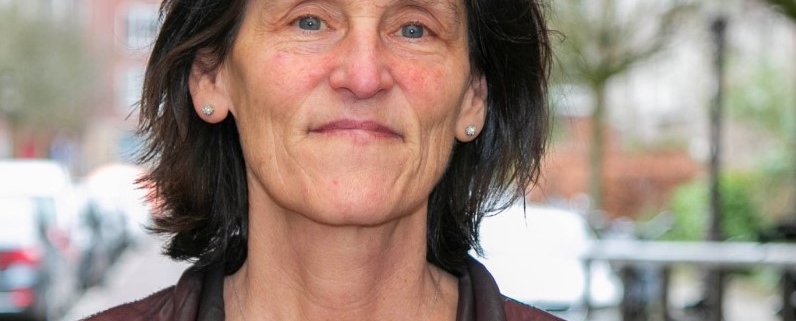Rachel Ploem: “When we engage men as part of the solution, it becomes a different journey”
Equitable, non-violent and caring forms of manhood
“It all started in 2007”, Rachel begins. “Women’s organisations in Indonesia and South Africa articulated an urgent call to us. Their female clients, survivors of domestic violence, said loud and clear: ‘It is not the relationship that has to end; it is the violence that should stop. Please, start working with our men!’ For Rutgers and me personally, it marked the beginning of a new journey with major mind shifts and unforeseen opportunities.”
The first MenEngage Symposium took place in July 2009, in Rio de Janeiro, Brazil. About her participation, Rachel says: “We just wanted to check whether we were on the right track in our development of a counselling programme for violent men. Over 350 organisations from all over the world had the same question. How could the negative impact of hegemonic masculinities be transformed to more equitable, non-violent and caring forms of manhood?
“What struck me was the absence of Dutch representation”, continues Rachel. “The Netherlands is usually quite visible when it comes to sexual and women’s rights. The Dutch are without a doubt pioneers in this field. However, it seemed the ‘rule of the restrictive head start’ had started to apply to us here. As historical frontrunners in the field, we had perhaps become less open towards innovative insights and approaches from elsewhere.”
Toolkit for men
Together with Rifka Annisa and the Women’s Crisis Centre Bengkulu, two organisations from Indonesia, and Mosaic from South Africa, Rutgers finalised an intervention for male perpetrators: Toolkit for Men: male counselling in the context of intimate partner violence.This toolkit was identified as the most systematically developed counselling programme for perpetrators, and was awarded the PSO Award for Innovation.
“We learned that only counselling men and couples, without fundamental and structural shifts in culture, society and behaviour, would not lead to sufficient change”, explains Rachel. “So, we developed a new programme, together with Promundo in the US.” MenCare+: engaging men in a four-country initiative, ran from 2012-2015 and focused on engaging young men and fathers in SRHR and pre- and postnatal care in Brazil, Indonesia, Rwanda, and South Africa.”
Boost at home
Fatherhood was used as a ‘tipping point’ to work with men on issues, that for a long time were considered purely women’s affairs. And indeed, MenCare+’s results were encouraging. We saw improved communication, an increase in uptake of contraceptives, involvement of fathers in childcare, reduction of GBV and increased happiness.”
By linking the MenCare+ programme to the Global Fatherhood Campaign, it boosted the Netherlands as well. “We had started a ‘reversed learning process’. Successful advocacy and public campaigning resulted in an extension of paternity leave from two days to five days from January 2019 and an extra extension, up to 6 weeks, from July 2020 onwards. It also triggered the Dutch Ministry of Education to ask: what about Dutch men?” Rutgers developed ‘Beat the Macho’ and ‘Lefgozers’ together with Movisie. “This followed a similar approach as to MenCare+. Young men were offered safe spaces, free from peer pressure, to question what manhood means to them. ‘Be yourself’ became their new mantra.”
Prevention+
At the start of 2016, MenCare+ was followed by Prevention+: men and women ending gender-based violence. Rachel: “If this problem is to end, underlying harmful cultural norms and values should be addressed, and boys and men must be engaged. Opening up for working with men on gender issues in a positive way, starts with self-reflection and becoming aware of your own biases. In an organisation with its roots in feminism, it wasn’t always plain sailing to overcome deep-rooted gender biases and resistance.”
“Violent realities are complex. By looking at both men and women as ‘gendered’, and by acknowledging that both can be victims, as well as perpetrators, we can get a better understanding of people’s experiences. It helps create more effective strategies in terms of prevention and access to services. It is important to frame men as part of the solution, instead of part of the problem, without undermining women’s safety and empowerment. Then it becomes a different journey, a change process that both boys and men, girls and women can profit from.”
The Prevention+ programme is centred around the ‘Gender-transformative Approach’. This way of working aims to free all people from power inequalities and restrictive gender and sexual norms, at all levels of society. “We’ve now adopted this as a cross-cutting part of all international work at Rutgers. A toolkit was developed and master trainers strengthen the approach around the world.”
Message of zero tolerance
“While we were working hard on implementing our programmes, a historical moment took place in October 2017”, continues Rachel. “Famous Hollywood producer, Harvey Weinstein, was accused of sexual and power abuse. The world was awakened by #MeToo. Millions of women and a few men, broke the silence and started sharing their own experiences with harassment and rape, committed by well-known powerful male figures, and by many more ‘invisible’ men. The message is clear: zero tolerance to sexual violence, harassment and sexism!”
“This time, more than ever, boys and men are actively triggered to listen to the stories of women, and to take a stand against other men who are harassing and perpetrating male chauvinism and misogyny towards women, and other men”, says Rachel. “#MeToo positioned sexual violence back into the public debate. It is about power and abuse within the social order that maintains abuse.”
New Strategic Alliances
At that same time there is reason for less optimism. “A rising conservatism goes along with a tendency to turn away from universal human rights towards more dogmatic beliefs. The impact of this shift has disproportionate consequences for girls and women. It limits their sexual rights, and entails a reinforcement of male hierarchy affecting boys and men as well. People with diverse sexual and gender identities are pushed into the margins”, says Rachel. “It urges for critical (self)-reflection, debate and dialogue. Questions like the connection between toxic masculine behaviour and feelings of meaninglessness, detachment and the lack of prospects are raised. New strategic alliances need to be formed.”
As one of her last big events at Rutgers, Rachel organised a learning event with leaders from different religious communities, governments and civil society organisations from nine countries. A special moment was a dialogue with (H)echt Verbonden, a Rotterdam-based initiative that also deals with breaking harmful cultural practices in partnership with religious leaders, government and survivors of violence.
Here, we saw what Rachel stood for in her career at Rutgers. The promotion of equal and non-violent (sexual) relationships in societies based on openness, inclusiveness and diversity. “More than ever we need to engage boys and men in changing a system and a culture rooted in centuries of male supremacy, together with girls and women. It is about creating new space for all, to be human!”







